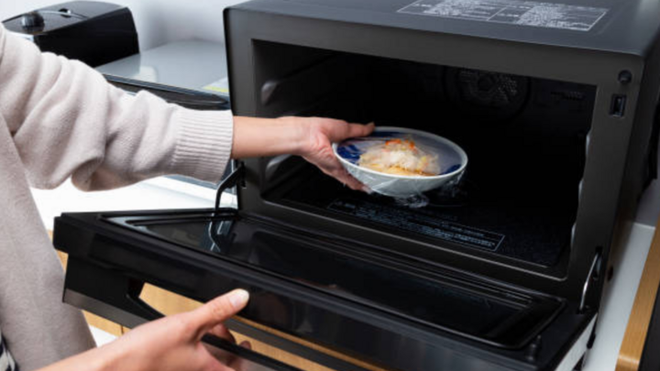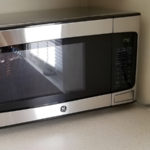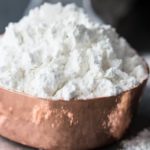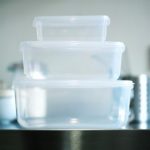Microwave ovens are a common appliance found in most modern kitchens. They are frequently used for daily cooking tasks, from defrosting food to quickly reheating meals.
When microwaving food, should you cover it or leave it uncovered?
For optimal safety, it is recommended to cover containers and bowls when microwaving food, primarily for two reasons.
Firstly, hygiene is a concern. According to Tasting Table, we all hate opening the microwave and finding food splattered all over the inside; but some foods are also prone to exploding in the microwave. Therefore, it is advisable to have a cover or shield over your food when microwaving.

Should you cover or uncover food when microwaving? Many people wonder about this. (Photo: ClassLab)
Using a lid while microwaving helps to contain any mess, keeping the microwave clean and saving you time and effort on cleanup.
Secondly, it is a matter of food quality. According to Today, microwaving food without a cover can affect the texture and moisture content of the food, as well as the distribution of heat. However, using a cover ensures even heating and better-tasting food.
Therefore, it is best to cover food with a lid or plastic wrap, seal the container or bowl, and then adjust the heat and time accordingly when microwaving. Also, it is important to use glass containers for microwaving food, or plastic containers that are specifically labeled as microwave-safe. Avoid using plastic containers of unknown origin or quality.
Precautions for microwaving food
When microwaving dry foods with little moisture, use a container with a tight-fitting lid. For liquid or moist foods, use containers with vented lids or openings.
Alternatively, you can also use plastic food wrap that is specifically labeled “Microwave Safe” to cover your food when using the microwave. This is a fairly safe and convenient option if you do not have many glass containers or lidded food containers available.
Common mistakes to avoid when using a microwave
Microwaving multiple items at once or microwaving continuously can lead to overloading and cause food to absorb unwanted flavors Using disposable plastic or Styrofoam containers to microwave food is dangerous as low-quality plastic and Styrofoam can leach toxins into your food when exposed to heat, posing health risks Using the microwave for unintended purposes, such as drying gloves or aprons, can cause electrical problems and pose fire hazards If you do not clean your microwave regularly, it can accumulate mold and odors from food residue. Therefore, it is important to clean your microwave once or twice a week.
Food Containers’>Guide to Determining Microwave Safe Food Containers
Considering the Pros and Cons of Continuously Plugging in a Microwave
Are you curious about whether you should keep your microwave plugged in continuously or if there are any precautions to take when using a microwave? Read on to get answers to these questions in this article!





































